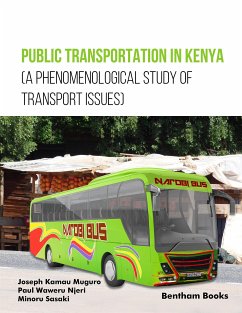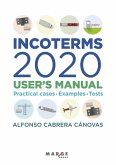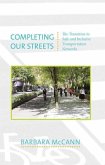Public Transportation in Kenya provides an in-depth examination of the significant challenges faced by Kenya’s public transportation system, using a phenomenological approach to highlight the real-world experiences of commuters and stakeholders. The book addresses two primary goals: to explain the severe impact of transportation issues on millions of Kenyans, including loss of livelihoods, disabilities, and fatalities, and to propose solutions aimed at reducing road traffic accidents and improving overall transportation safety. The chapters begin with a review of Kenya's transport studies and current state, followed by an analysis of road traffic accident data and contributing factors. Subsequent sections explore the inadequacies in infrastructure, traffic law and enforcement, and the challenges posed by incomplete data collection. The book also details an innovative study using data mining and natural language processing (NLP) on over one million traffic-related tweets to uncover commuter trends and driver behaviors. The final set of chapters presents comprehensive recommendations for improving road safety, enhancing infrastructure, and reforming policing practices to better manage traffic and transportation issues. Key features of this book include the use of both structured and unstructured data for a robust analysis, practical solutions for policymakers, and an innovative methodological approach utilizing NLP and data mining to analyze the issues presented. References and summaries are also provided in each chapter to make information accessible. These elements make the book a valuable resource for researchers, academics, policymakers, transportation professionals, and anyone interested in the socio-economic impacts of public transportation in Kenya and other African countries. Public Transportation in Kenya is essential reading for those looking to understand and address the critical transportation challenges that affect millions daily, providing insights and solutions that can lead to safer and more efficient transport systems. Readership All readers who want to understand transportation issues in Kenya: students, general readers, researchers, professionals and policymakers in the field of urban planning and transportation.
Bitte wählen Sie Ihr Anliegen aus.
Rechnungen
Retourenschein anfordern
Bestellstatus
Storno









